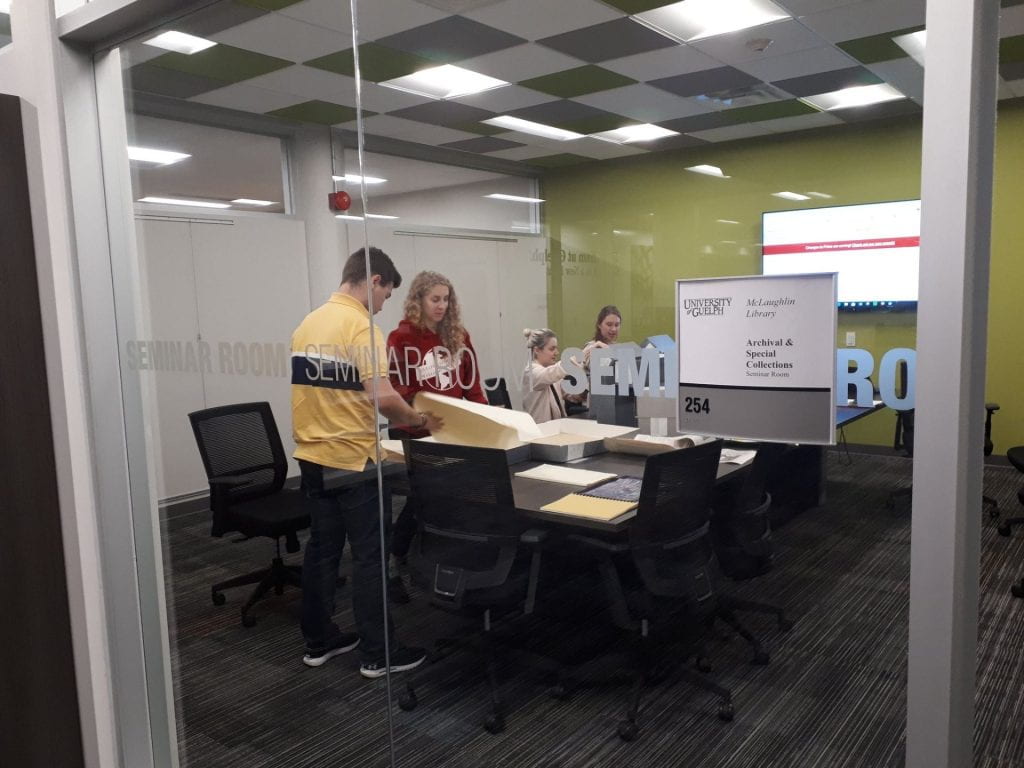Written by Aleksa Nitsis
In early September of 2019, I received an email describing an amazing experiential learning opportunity, a course on the history of The Arboretum. The final outcome of the course was intended to be a short book that would be sold as a fundraiser for their 50th anniversary celebrations in 2020. As soon as I read this email, I knew that the opportunity aligned with my interests, and before I knew it, I met with Dr. Kim Martin and my fellow classmates. We were on our way. Together, we conducted plenty of archival research in McLaughlin library, documenting information from newspapers, press releases, original map drawings, and even photographs. We then conducted a series of oral history interviews with both current and former Arboretum staff members. Although the second semester working on this project was cut short due to the global pandemic of COVID-19, the skills and experiences I gained from working with the team will assist me in the years to come.

History students look through Arboretum documents in the archives and special collections room.
Conducting research in the library archives was a very gratifying experience. My research specifically, focused on the different forms of environmental conservation efforts that took place at The Arboretum throughout its 50 years of history. Through this examination, I learned about the vast importance of plant conservation, as it helps restore both plant species and the habitats they occupy. Two programs relevant to plant conservation at the Arboretum are the Rare Woody Plants of Ontario Program and the Elm Recovery Project. Both of these programs showcase the importance of promoting environmental conservation through the preservation of at-risk species and protecting the genetic diversity of plants.
Unfortunately, the interviews we planned to conduct during the second semester of taking this course were cut short. However, despite this, I still had the pleasure of interviewing Chris Earley, the Interpretive Biologist and Education Coordinator at The Arboretum. During our discussion, he told me about his role at The Arboretum, his love for nature and sustainability, as well as his passion for education. Earley opened my eyes to much of the phenomenal work he and other staff at The Arboretum have conducted. He teaches across interdisciplinary lines, leading workshops for courses from science to eco-feminism, and creates biodiversity sheets that inspire kids of all ages to look into nature by sparking their interest in ecology and animals. We had a great ‘off the record’ chat about the future of climate change, and I know that this experience has helped shape me into a better interviewer, historian, and environmentalist.
“This experience reignited my love for education and passion for environmental conservation”
All in all, the skills and knowledge I gained from my experience working alongside these amazing humans will transform me for a lifetime. It’s quite difficult to find opportunities in a post-secondary academic setting where you can genuinely create connections with fellow students and professors in a mesmerizing space such as The Arboretum, let alone a classroom. This experience reignited my love for education and passion for environmental conservation, two pivotal parts of myself that were silently fading away as fourth-year burnout was setting in. I am happy to say that I was a part of something beautiful that I gained a lot of joy from, and I was able to do it alongside people and an environment that inspired me to become better every day that we worked together.
Aleksa Nitsis completed her undergraduate degree in International Development with an emphasis in Historical Perspectives at the University of Guelph. She is pursuing her Master of Teaching at the University of Toronto focusing on History and Geography.


